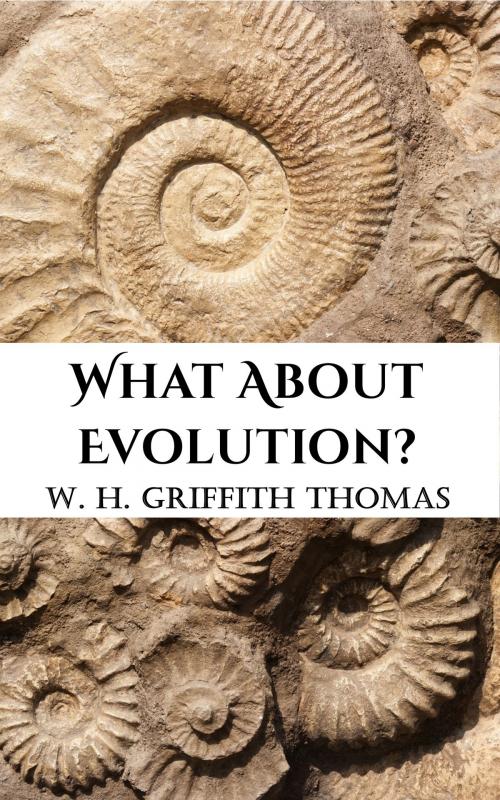What About Evolution?
Nonfiction, Religion & Spirituality, Christianity, Christian Science, Christian Literature| Author: | W. H. Griffith Thomas | ISBN: | 1230001943481 |
| Publisher: | CrossReach Publications | Publication: | September 29, 2017 |
| Imprint: | Language: | English |
| Author: | W. H. Griffith Thomas |
| ISBN: | 1230001943481 |
| Publisher: | CrossReach Publications |
| Publication: | September 29, 2017 |
| Imprint: | |
| Language: | English |
It is sometimes said that Christianity has suffered much from not accepting the modern scientific doctrine of Evolution. Do those who speak in this way really know what Evolution means? Could they define it? Could they tell in what way it has been modified since the time of Darwin? There is no little ignorance on the subject, and it is worth while to consider what is to be understood by the term.
A statement recently reported as made by an American clergyman represents the views of many on Evolution: “There is no escape for intelligent people today from the acceptance of the law of Evolution. This law may be stated briefly to be that life on this planet, including man, has developed from the lower to higher types. Thus, man has gradually developed from some lower form of animal life. And man in his highest estate has through infinite years developed from man in his savage state.” It is clear from such an utterance that this minister has accepted the idea of Evolution without giving it that careful attention which is necessary in the case of so vital and important a question. It is an illustration of how easy it is to accept a position which happens to be current, without subjecting it to proper examination.
Evolution may mean little or a great deal. The term is often misused. Sometimes it is employed quite generally to indicate a change brought about by some force, whether internal or external. But the strictly scientific meaning is, a change wrought by internal force without external aid or volition. It would be well if this strictly correct meaning could always be understood by the use of the term.
The ordinary reader need have no difficulty in understanding that it is usual to divide the subject into suborganic, organic, and super-organic. The first refers to the development of matter without life, and is applied to the formation of the solar system from some cruder conditions of matter. Organic Evolution is intended to describe a process of derivation or development of vegetable and animal life. Super-organic Evolution refers to the same principle in metaphysical and non-material spheres.
It is sometimes said that Christianity has suffered much from not accepting the modern scientific doctrine of Evolution. Do those who speak in this way really know what Evolution means? Could they define it? Could they tell in what way it has been modified since the time of Darwin? There is no little ignorance on the subject, and it is worth while to consider what is to be understood by the term.
A statement recently reported as made by an American clergyman represents the views of many on Evolution: “There is no escape for intelligent people today from the acceptance of the law of Evolution. This law may be stated briefly to be that life on this planet, including man, has developed from the lower to higher types. Thus, man has gradually developed from some lower form of animal life. And man in his highest estate has through infinite years developed from man in his savage state.” It is clear from such an utterance that this minister has accepted the idea of Evolution without giving it that careful attention which is necessary in the case of so vital and important a question. It is an illustration of how easy it is to accept a position which happens to be current, without subjecting it to proper examination.
Evolution may mean little or a great deal. The term is often misused. Sometimes it is employed quite generally to indicate a change brought about by some force, whether internal or external. But the strictly scientific meaning is, a change wrought by internal force without external aid or volition. It would be well if this strictly correct meaning could always be understood by the use of the term.
The ordinary reader need have no difficulty in understanding that it is usual to divide the subject into suborganic, organic, and super-organic. The first refers to the development of matter without life, and is applied to the formation of the solar system from some cruder conditions of matter. Organic Evolution is intended to describe a process of derivation or development of vegetable and animal life. Super-organic Evolution refers to the same principle in metaphysical and non-material spheres.















